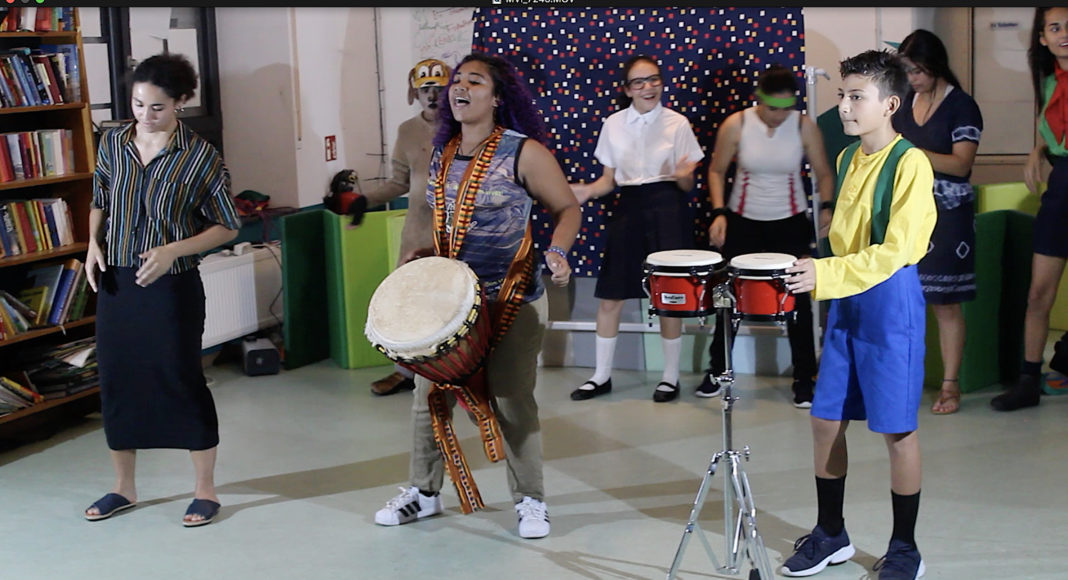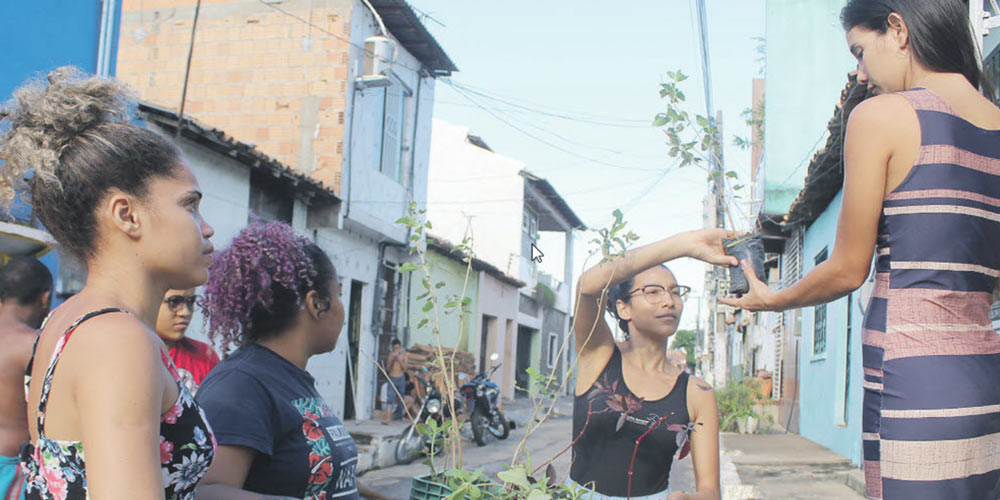Letter No 2 from Elisa Dias, Cabelo Seco, Marabá, 13 June 2019
Dear Friends,
My experience in Belgium was really extraordinary. We learned so much in just a few days. I’m gradually getting used to meeting a new organizing team twice a day, so my experience in Germany pushed me outside my comfort zone to begin to appreciate living with the unexpected.
We reached Germany after an hour and a half’s train journey and were met at the super-modern station of the mediaeval city of Cologne by Antônia Vogelsang, the international director responsible for the European Union tours of the KinderKulturaKaravane (Caravan of Children’s Culture). In the kitchen of her old flat, full of drums, puppets, photos and paintings, we discovered that Antônia was Brazilian of afro-indigenous origin, raised in Germany. She had graduated in Latin American Studies and Political Science in Cologne and was fluent in Portuguese, German, English and Spanish. Antônia served us a typical Brazilian ‘moqueca’ stew of prawns, peppers and rice, while she briefed us on our first day’s activities.
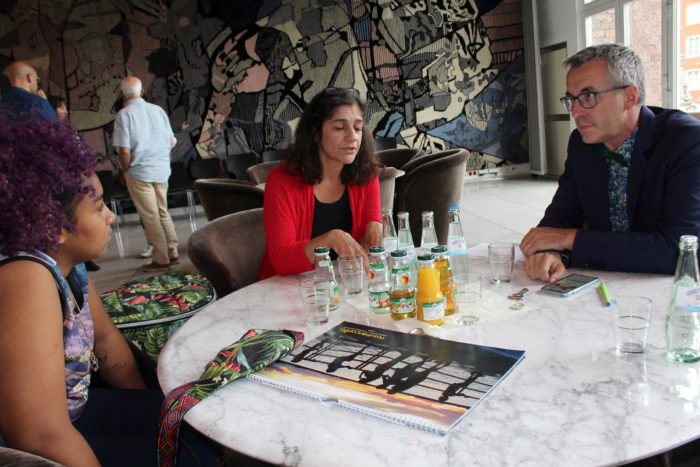
Next morning, after a rehearsal in the basement of the old building, we met the deputy mayor, a member of the Green Party, who was deeply committed to the struggle to defend the environment. I had a sore throat and decided I would only drum, not sing, to avoid damaging my voice. But after enjoying a sample of the performance by the teenagers from El Salvador, I found myself singing and playing at full volume the first section of my solo for the international forum ‘Fixing the Future’ in Barcelona. It was completely spontaneous and so well received, I realized that I’d overcome my fear of harming my voice!
Dan’s short introduction and my song got us a private interview with the deputy mayor who was genuinely impressed to meet a young woman who, at a really early age, when she was scarcely aware that Marabá is part of Amazonia or that she had African and indigenous blood in her veins, had discovered her roots and become a defender of the Amazon, the planet’s vital lungs. He fell in love with Rios de Encontro!

Flying a kite
At a lunch with teachers from one of the region’s schools where we were going to perform, I told them our play’s story of a child looking for wind to fly his kite during a time of drought. As one of the organizers of our kite festival, I recalled how my son Pietro takes part, and managed to sensitize and reassure the experienced teachers who were worried whether an audience of young children would be able to understand why the Amazon is becoming arid. They could see how the children in the audience, blowing air in solidarity with the child on stage, would themselves become the primary actors in getting the kite to fly during our performance. Each question generated ideas to take home to our collective. It was tiring for me because of the concentration required, and everything having to be translated, but it was such a good conversation that I couldn’t wait to share the ideas with our AfroRaiz Collective to create the performance.
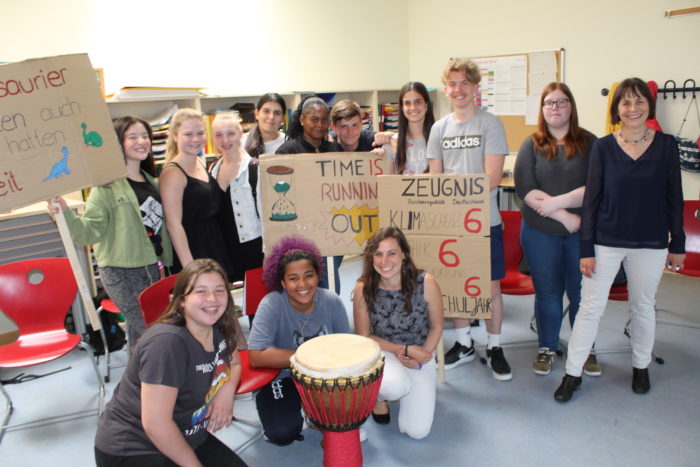
That evening we went to a community performance from El Salvador, in the historic House of Youth in Cologne. On stage, their performance solved the problem of explaining their national flag by using the human drama of their journey, which became a story of discovering cultural identity. This popular theatre enchanted me and made me reflect on my solo, so carefully rehearsed and imprisoned in my fear of making a mistake or injuring myself.
After enjoying the El Salvador performance, the actors so playful, sympathetic, animated and interactive with the kids in the audience, I was invited by Ulla, a wise woman in charge of our tour in Germany, to present a preview of our performance. I didn’t want to steal the limelight from the Salvadorean group, so I asked a young boy from their group to play alongside me on stage. I then improvised a short workshop of clapping and rhythm, interacting on stage with him and joking with the audience. My song emerged in a completely new form! I thanked the audience and invited all the Salvadorean group to join me in thanking them.
Slavery never again!
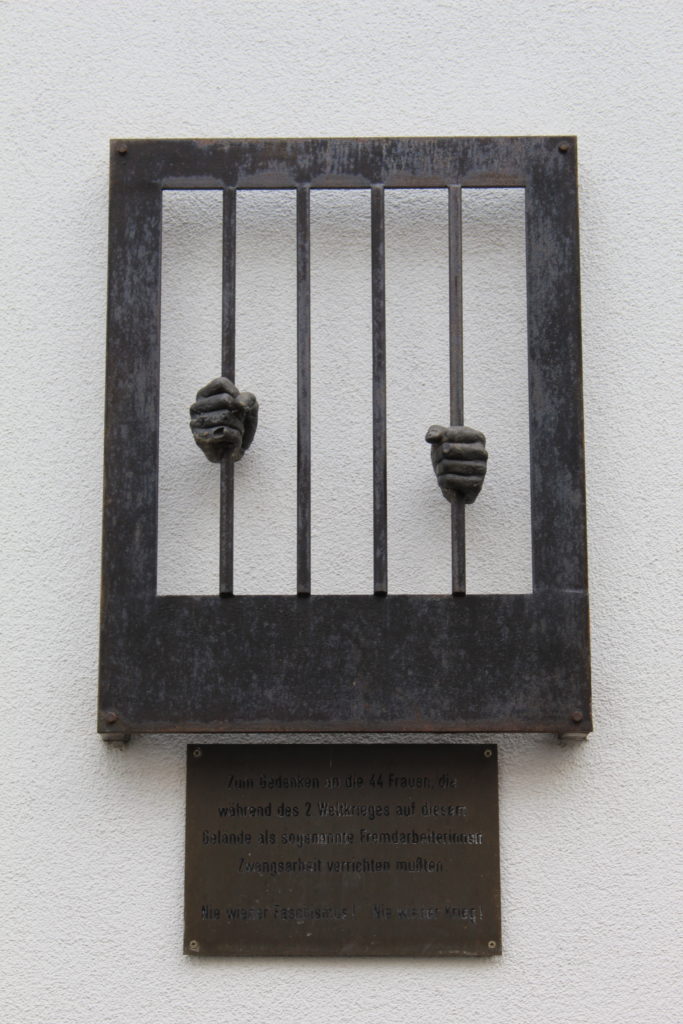
One of the organizers told us that in that House of Youth, women had been held prisoner and forced to work as slaves, earning little or nothing in return for heavy labour. As we left I understood the meaning of a small monument embedded in the wall, inscribed ‘SLAVERY NEVER AGAIN’.
At dawn the next day, we left early for the airport. In Lisbon I’d been allowed to put two suitcases in the hold, but on this trip to Poland, we were permitted only one. My djembe drum, carefully packaged, went into the hold, and still only half awake, I forgot several bottles of cosmetics in my hand luggage which were over the 100 mil limit. They insisted on applying the rule and I had to leave them all behind.
On the plane, we were served by a Brazilian stewardess. Hearing me speak Portuguese, she asked if Dan and I were married. I was dismayed and at the same time, annoyed by the assumptions people make about Brazilian women when they go abroad. But afterwards I spoke about our project in the Amazon and my reasons for coming to Europe, and she became interested and even gave me her email and phone number, so that I could let her know the tour programme. I looked at her, imprisoned in my prejudice and indignation, and then looked at her again, open to the unexpected , in solidarity with a socio-environmental project.
I was so grateful for my training experience, keen to get back to share everything with my friends in the AfroRaiz collective.
Elisa Dias, aged 22, is a percussionist in the AfroRaiz Collective and coordinator of the Salus project for Rios de Encontro. She made this trip as a trainee international project coordinator, accompanying Dan Baron Cohen, to plan the Rios de Encontro European tour which will take place in September-October 2019.
All images courtesy of Rios de Encontro

